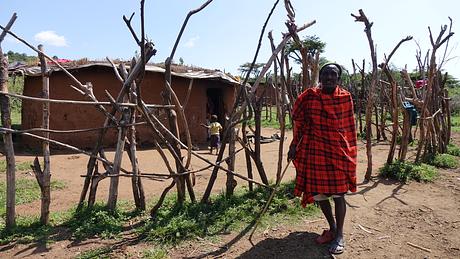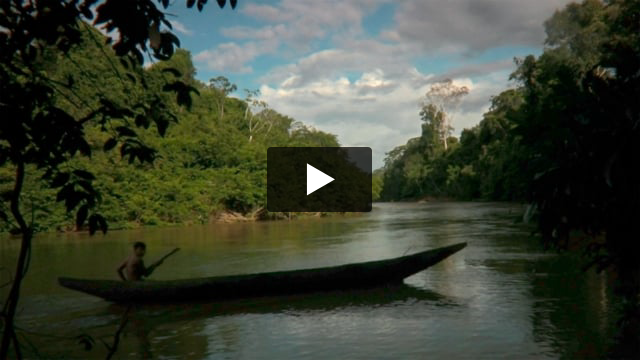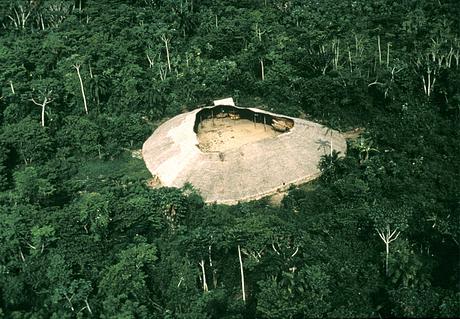South American Indians to receive royalties from potato sales
April 1, 2011
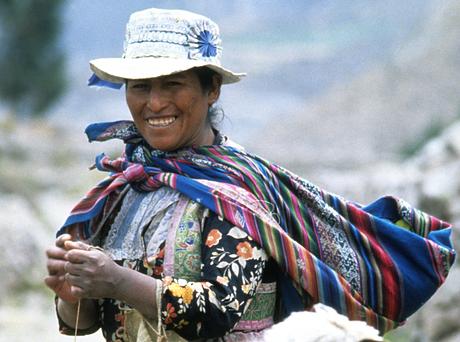 © H Mason/ Survival
© H Mason/ SurvivalThis page was last updated in 2011 and may contain language which is now outdated.
Many people ask, ‘What can tribal peoples teach the rest of the world?’ Most don’t know that tribal peoples have already given the world some of its most important foodstuffs, which sustain billions of people and which have already saved countless lives, particularly in poorer countries.
The purpose of the 2011 Survival April Fool was to shock people into realising, and remembering, this important fact, which tends not to be taught to young people or covered by the mainstream media.
Tribal peoples obviously did not develop advanced machine-based technology; they did however develop most of the world’s staple food crops. When allowed to, they often still choose a way of life different to that of industrialised society. This does not mean they are ‘backward’ or ‘primitive’. They are a vital component of the world’s human diversity, but are routinely treated with contempt, their rights abused, and their lives and ways of life denied them.
Survival seeks to change this. Its April Fool is just one of many tools used to do so.
–––––––––––––––––––––––––––––––––––––––––––The UN’s Intellectual Property Tribunal today ruled that South American Indians should receive 1% of the profits from potato sales worldwide, ‘in recognition of the fact that potatoes as we know them are effectively an Indigenous creation’.
The head of the tribunal, Dr. Desiree Dauphinoise, said that tribal peoples in Peru were the first cultivators of potatoes between 3000 and 2000 BC, and ‘as creators of the world’s fourth-largest food crop, we believe it is only right that the debt the world owes Indigenous people is finally acknowledged.
‘What this decision really boils down to is giving credit to tribal peoples for their contribution to our everyday diets. We are going to keep our eyes peeled for other foods cultivated by tribal peoples that have not yet been recognized.’
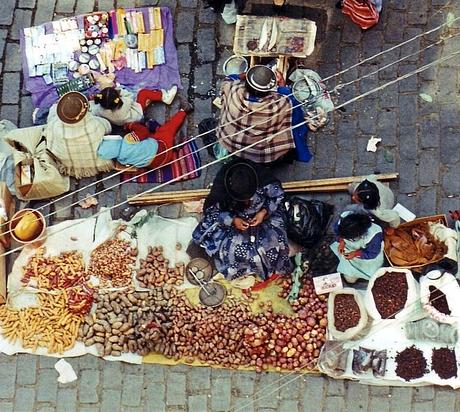 © Survival
© Survival
The South American Native Tribes Executive (Sante), who had brought the case before the tribunal, celebrated a ‘major victory’. Sante’s President, Jorge Papas, said, ‘This is a great victory for Sante and tribal people around the world. With the royalties we get from the potatoes, we will be able to buy back some of the lands that ranchers, loggers, and oil companies have taken from us.’
With predicted annual revenue of $200 million, Sante will be able to purchase much of the lands that are currently occupied by businesses operating in and around the Amazon. This has led to fears that major oil companies like Repsol YPF and ranching company Yaguarete Pora will themselves be threatened. However, part of the royalties will be set aside to produce a potato growing manual, as well as a recipe book, to help businessmen in the Amazon become self-sufficient.
Survival’s Director, Stephen Corry, said today, ‘We are very pleased with the decision of Dr. Dauphinoise to give due credit to tribal peoples for a food so many people rely on. We also want to reassure everyone that companies operating in the Amazon will not be left behind. While they may no longer be able to rely on the destruction of the rainforest for their livelihood, they will be able to grow potatoes.’


